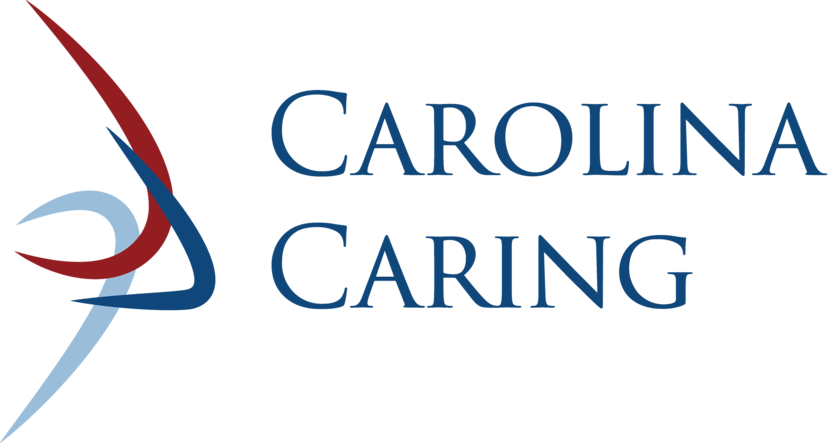Palliative Medicine in North Carolina
Palliative Medicine
Navigating a serious illness can be daunting. Luckily, Carolina Caring’s Palliative Medicine program is dedicated to supporting you through every step of your healthcare journey.
Our interdisciplinary team works closely with your primary care physician and specialists to manage symptoms, assist with medical decisions and minimize hospitalizations. Whether you prefer to receive care from the comfort of your home or one of our outpatient clinics, we are here to help.
If you’re interested in learning more about our palliative care services in North Carolina, call 828.466.0466 or contact us online. No referral is necessary to start receiving the support you deserve.
Download our eBook
Download our comprehensive Hospice & Palliative Care eBook to confidently navigate the emotional and practical aspects of hospice caregiving.
Hospice E-Book Download

What Is Palliative Medicine?
Palliative medicine is a specialized program of care designed to support patients facing serious illnesses. Unlike hospice care, which is typically reserved for individuals with a prognosis of six months or less, palliative medicine can be initiated at any stage of illness. It can also be integrated with or without curative treatments. Confused about the differences? Read our comprehensive guide on Hospice vs Palliative Care vs Home Care to understand which option might be right for you or your loved one.
Our palliative care team works alongside your primary care physician and specialists to provide an extra layer of comprehensive support. Our goals are simple:
- To improve your quality of life by managing cancer pain and symptoms
- To help you make important medical decisions
- To decrease trips to the emergency room and cut down on hospitalizations
We achieve these goals by providing a range of holistic services, including:
Pain and Symptom Management
Our compassionate care team utilizes a variety of medications, therapies and holistic interventions to alleviate discomfort and promote well-being.
Psychosocial Support
Coming to terms with a serious illness can be an emotional process. Our social worker is here to help patients cope with their diagnosis. Counselors are also available to provide resources and support to family members.
Spiritual Care
Upon admission to our adult palliative medicine program, we conduct an assessment to understand your spiritual needs and preferences.
Education and Advocacy
Our adult palliative medicine team empowers patients and their families with essential knowledge and resources. From offering guidance on medication administration to providing information regarding insurance procedures, we are here to help.
Advance Care Planning
Our interdisciplinary team walks you through advance care planning, ensuring your preferences for medical interventions are documented and respected.

Specialized Palliative Medicine Programs
As a leader in palliative care, Carolina Caring offers a spectrum of specialized care pathways designed to enhance patient comfort.

When Is Palliative Medicine Appropriate?
Palliative medicine is appropriate at any stage of a serious illness, from diagnosis onward. Recognizing when extra support is needed helps ensure that you or your loved one receives the best care possible.
Signs it might be time to consider Carolina Caring’s Palliative Medicine program include:
- Persistent and severe symptoms
- Frequent emergency room visits and hospitalizations
- Difficulty managing multiple comorbidities
- Decline in functional status
- Emotional or psychological distress
What Our Patients Say
“The Carolina Caring team was amazing, thoughtful and kind. In the moments of fear, sadness and confusion, they educated my family and provided comfort to not only our grandmother but to all of us.”
Ashley
Granddaughter of Carolina Caring Patient
“I cannot express how wonderful all staff have been during my mom’s final 5 months at home and then in the nursing home in Gastonia. They surely made mom’s last months comfortable. A wonderful team of true professionals!”
Ronald
Son of Carolina Caring Patient
“My mother has been in their care for almost a year and my father before that. Every single person I have met was exceptional and almost empathic. Anticipating my needs , answering questions, and gently caring for the whole family.”
Michael
Son of Carolina Caring Patient
“The staff is very proficient, caring, and understanding of anything that may be happening. They keep your loved one comfortable and they check on your loved one once an hour unless you need anything in between checks.”
Elizabeth
Daughter of Carolina Caring Patient
“Every single employee was professional and comforting. My Dad and our immediate family were cared for with respect through a difficult time. Didn’t feel like a clinical place. Felt like a place of compassion.”
Tim
Son of Carolina Caring Patient
Palliative Medicine in North Carolina
At Carolina Caring, we primarily deliver palliative care in the comfort of patients’ homes, providing dedicated home care assistance. However, we also extend our services to hospitals, assisted living centers, nursing homes, and our six outpatient clinics. This flexibility allows us to meet patients wherever they are in their healthcare journey.
To ensure care is accessible across our service area, we have six palliative medicine clinics:

Paying for Palliative Medicine
Most palliative care services at Carolina Caring are covered by Medicaid, Medicare and commercial insurance plans. We handle billing directly with your insurance provider and maintain transparency regarding any out-of-pocket costs.
We firmly believe every patient deserves compassionate and comprehensive care, regardless of insurance coverage. With this in mind, we offer a flexible billing policy based on financial need and never deny services due to finances.
For any questions regarding payment or to inquire about our services, please call us at 828.466.0466 or contact us online. Our compassionate team is dedicated to assisting you every step of the way.
Why Choose Carolina Caring?
For more than 45 years, North Carolina families have trusted Carolina Caring to support them through some of life’s most challenging moments. Here’s why:
Employee Commitment
We have been recognized as one of the best places to work in healthcare by Modern Healthcare for five consecutive years. Our commitment to providing staff with competitive pay and full benefits allows them to do what they do best: help patients.
Specialized Programming
We set ourselves apart by offering specialized palliative care programs tailored to veterans as well as patients with congestive heart failure, COPD and dementia. These programs enhance quality of life by providing targeted, comprehensive care.
Gold Seal of Approval
To demonstrate our dedication to state-of-the-art care, we voluntarily underwent rigorous evaluations and reviews to receive The Joint Commission’s Gold Seal of Approval for healthcare quality and safety in the field of home care.
Award-Winning Care
We firmly believe that every patient should have access to exceptional hospice and palliative care, regardless of financial circumstances.
Financial Flexibility
Thanks to the Carolina Caring Foundation, we never turn any family away because of insurance coverage or their ability to pay.

Receive the Support You Deserve Today
If you are living with a serious illness, Carolina Caring is here to help. Our three-step enrollment process is quick and straightforward, ensuring patients receive support as soon as possible.
Schedule a Consultation
First, call 828.466.0466 or contact us online. From there, we will schedule a time for you to meet with a member of our medical team during a one-on-one consultation.
Develop a Care Plan
During your consultation, we will ask you some questions to learn more about your medical condition and emotional, social and spiritual needs. Afterward, we will work with you and other members of your medical team to develop a comprehensive care plan.
Fill Each Day With Purpose
With support in place, you can focus on what matters most: living your life to the fullest.
Send A Message
Contact Form
If you are a current patient or caregiver with Carolina Caring and need to speak to someone about your care, please call our main line at 828.466.0466. For all other inquires please complete this contact form.
Palliative Medicine FAQs
Is there a difference between palliative care and palliative medicine?
Yes, there is a difference between palliative care and palliative medicine. Palliative care is typically provided at the end of life. Comparatively, palliative medicine is focused on delivering ongoing symptom management for patients who need care for chronic illnesses.
Is palliative medicine the same as hospice care?
No, palliative medicine is not the same as hospice care. While both focus on improving quality of life, palliative medicine can be provided at any stage of a serious illness and alongside curative treatments. Hospice care, on the other hand, focuses on comfort care when curative treatments are no longer effective or desired.
Can my loved one continue to receive curative treatments while receiving palliative medicine?
Yes, patients receiving palliative medicine can continue to receive curative treatments aimed at managing or curing their illness.
Recent Blog Articles
- Other
ASHEVILLE, NC—Carolina Caring earned top recognition at the annual Carolinas HealthcarePublic Relations and Marketing Society (CHPRMS)...
- Other
When a loved one’s health begins to decline, families are often faced with difficult care decisions....
- Blog
A cancer diagnosis can upend life in an instant. Even with strong medical support, treatment can...




